The Fine Print on Free College: Who Benefits From New York’s Excelsior Scholarship?
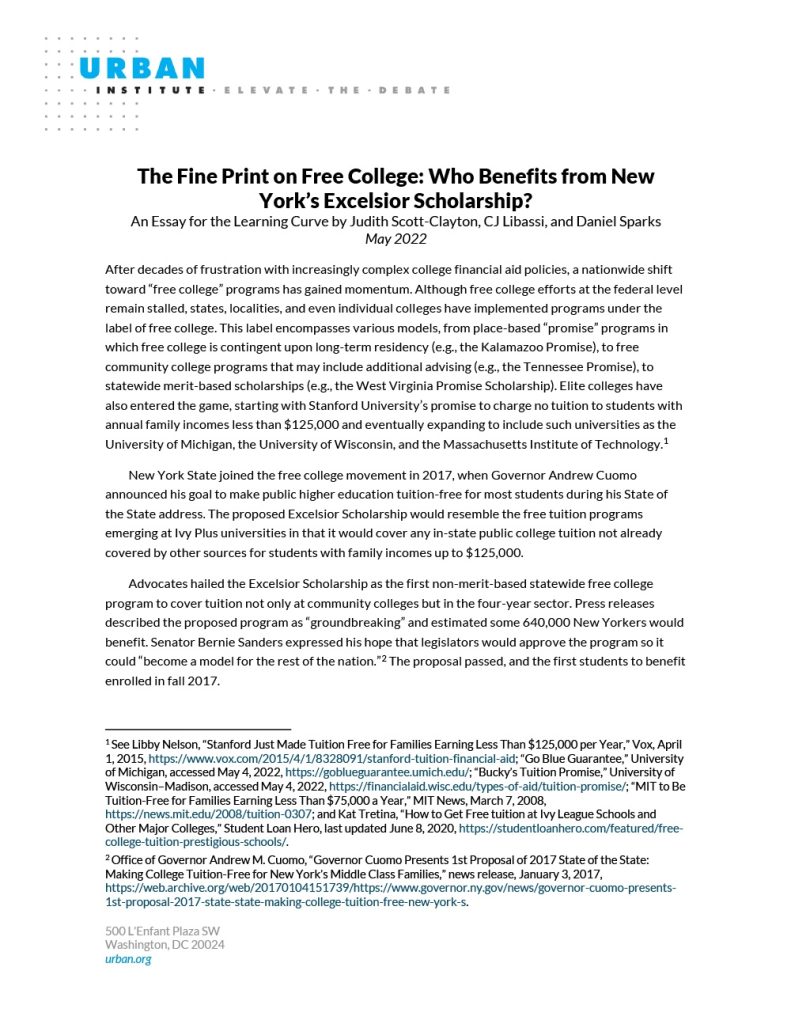
Using data on students enrolled in two- and four-year colleges of the City University of New York, this essay assesses the distribution of benefits of the scholarship program in terms of who qualifies for, receives, and renews awards.
Improving College Success for Students in Corequisite Reading
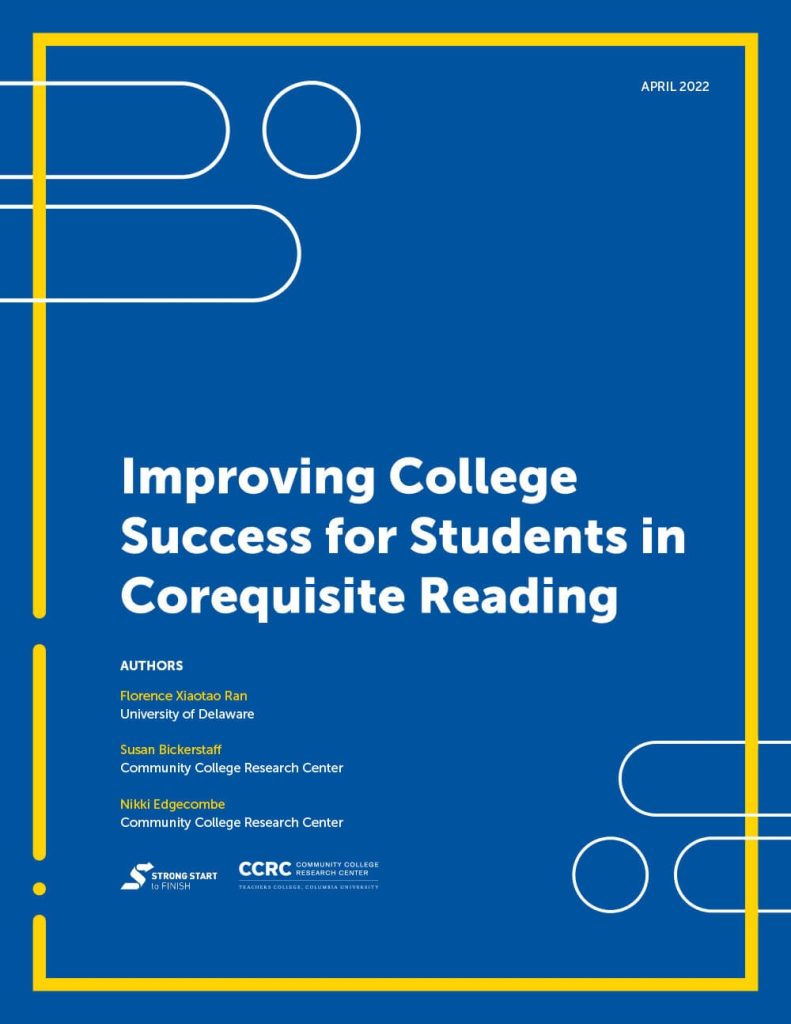
Using administrative data, this report examines early college outcomes of students placed into corequisite reading courses at the 13 community colleges in the Tennessee Board of Regents system.
Preparing for Tomorrow’s Middle-Skill Jobs: How Community Colleges Are Responding to Technology Innovation in the Workplace
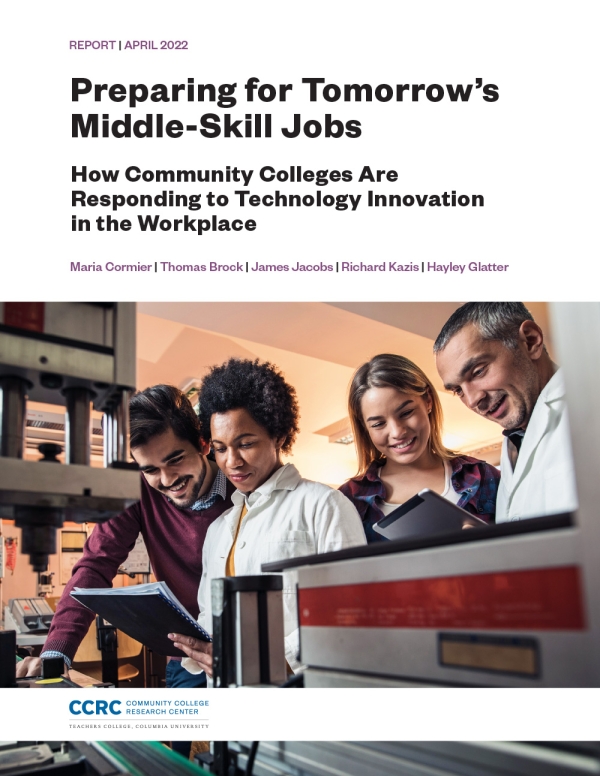
Based on fieldwork at eight institutions, this report describes how community colleges are responding to workplace technology innovation by adapting their workforce programming, diversifying pathways to certificates and degrees, and addressing equity concerns.
The Effects of Corequisite Remediation: Evidence From a Statewide Reform in Tennessee
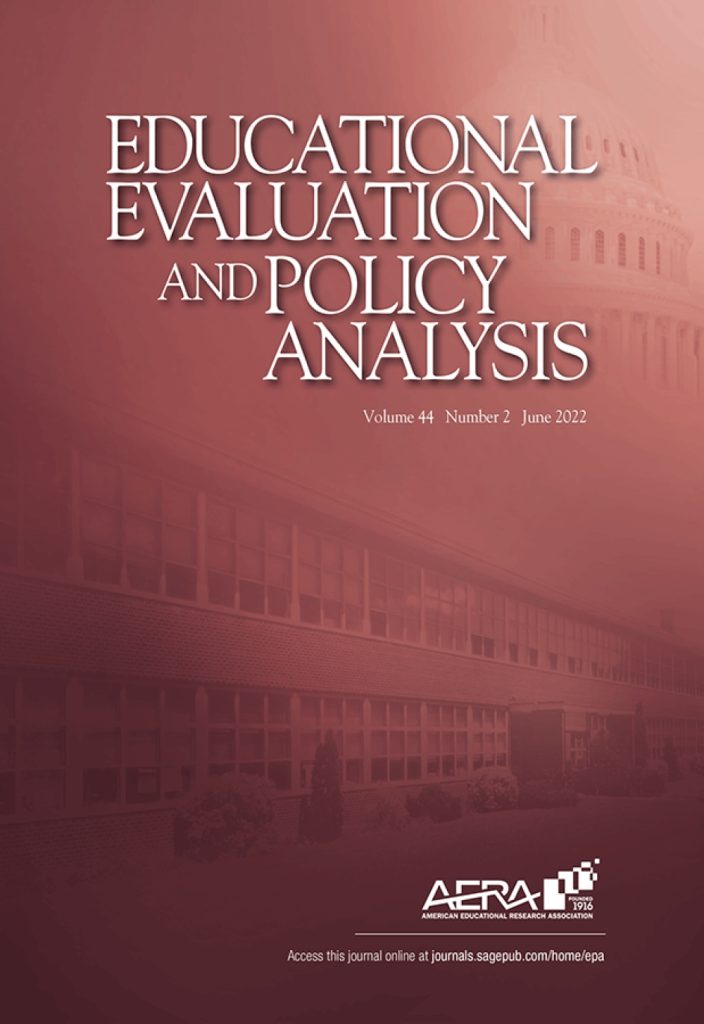
This paper provides the first causal evidence on a system-wide corequisite reform, using data from all 13 community colleges affiliated with the Tennessee Board of Regents.
Lessons From Two Experimental Studies of Multiple Measures Assessment
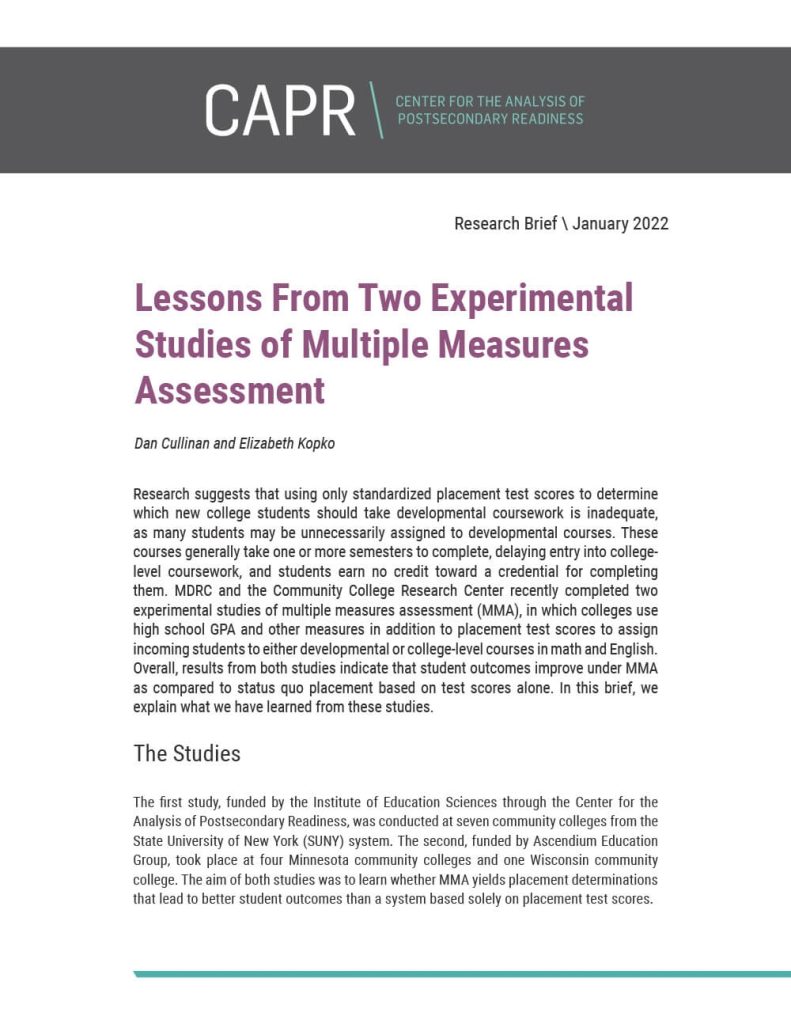
This CAPR brief describes two recent experimental studies of multiple measures assessment, in which colleges use measures beyond placement test scores to determine students’ college readiness.
